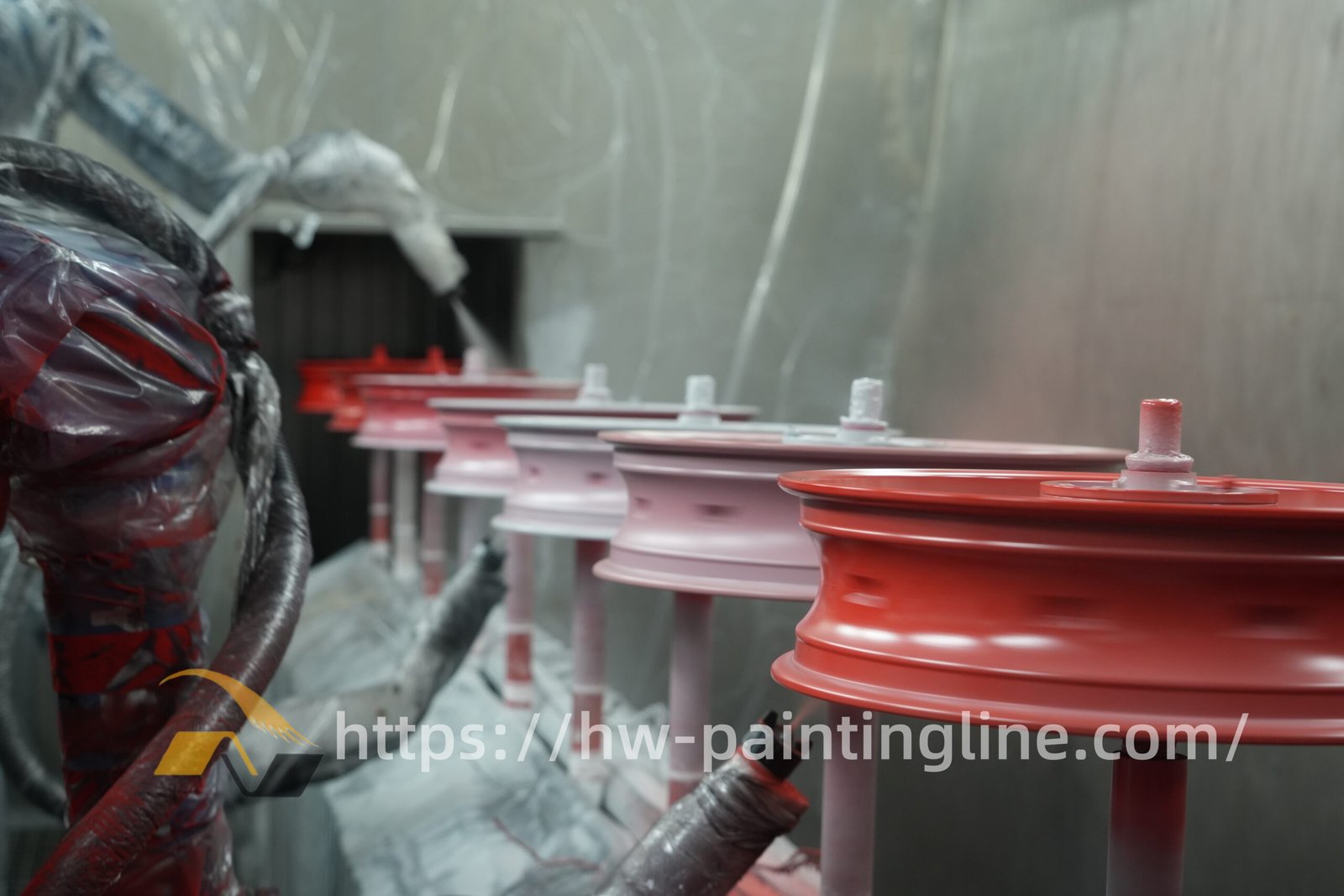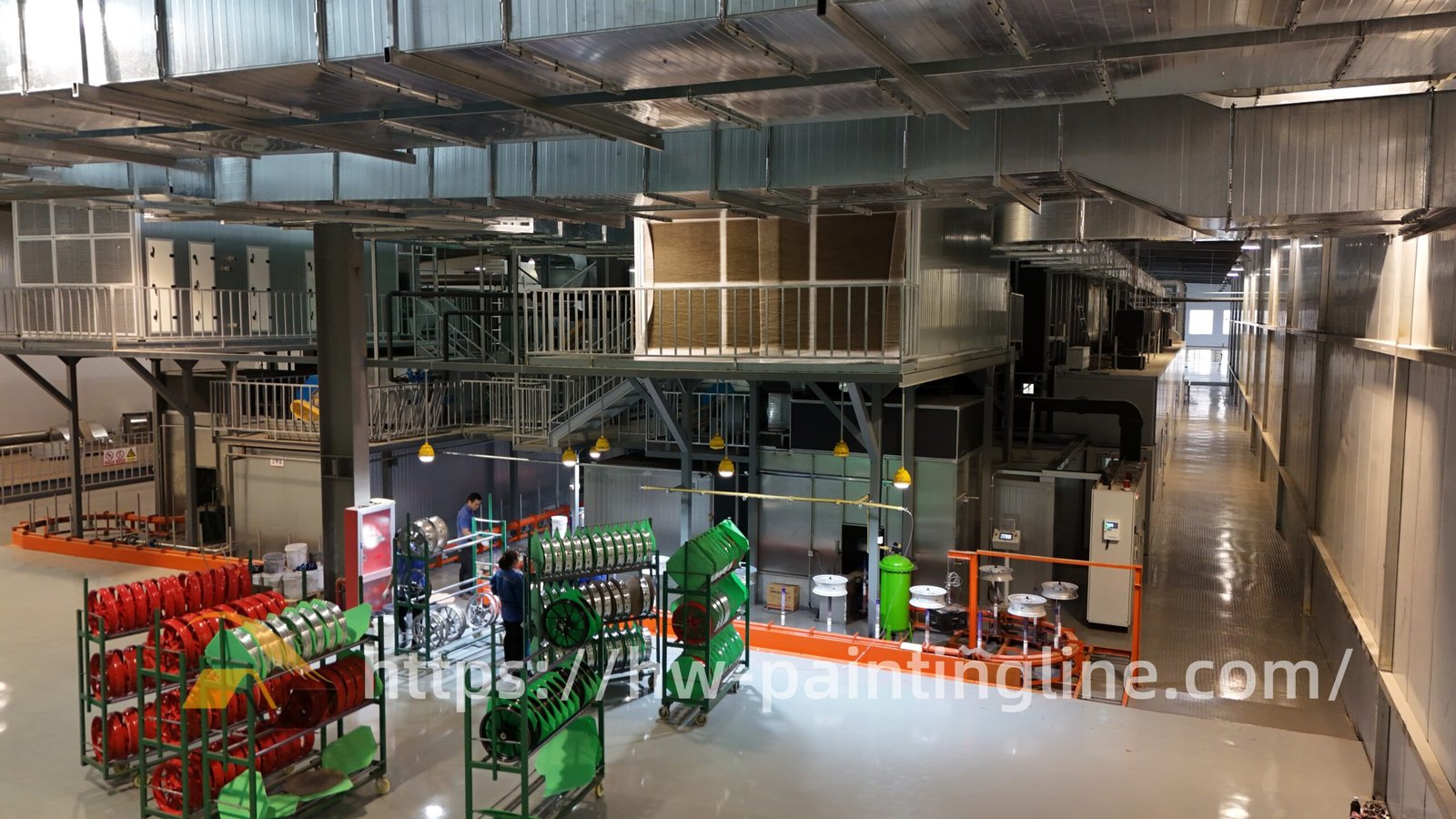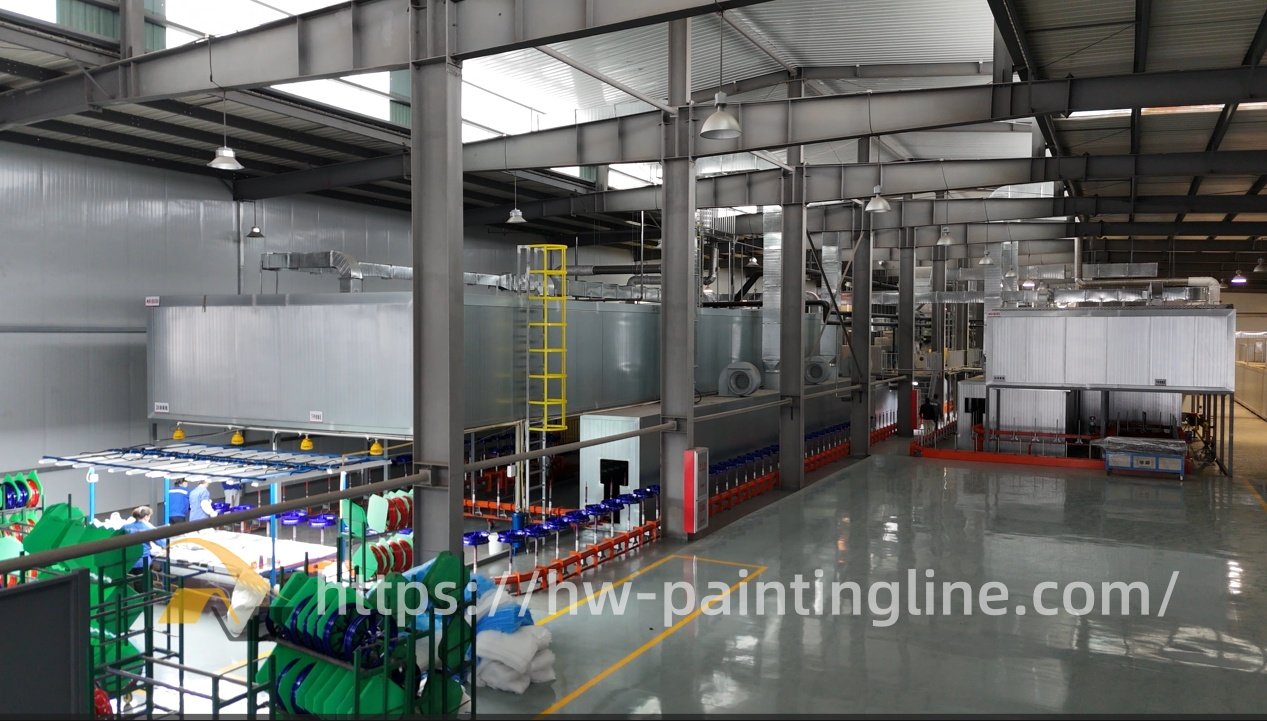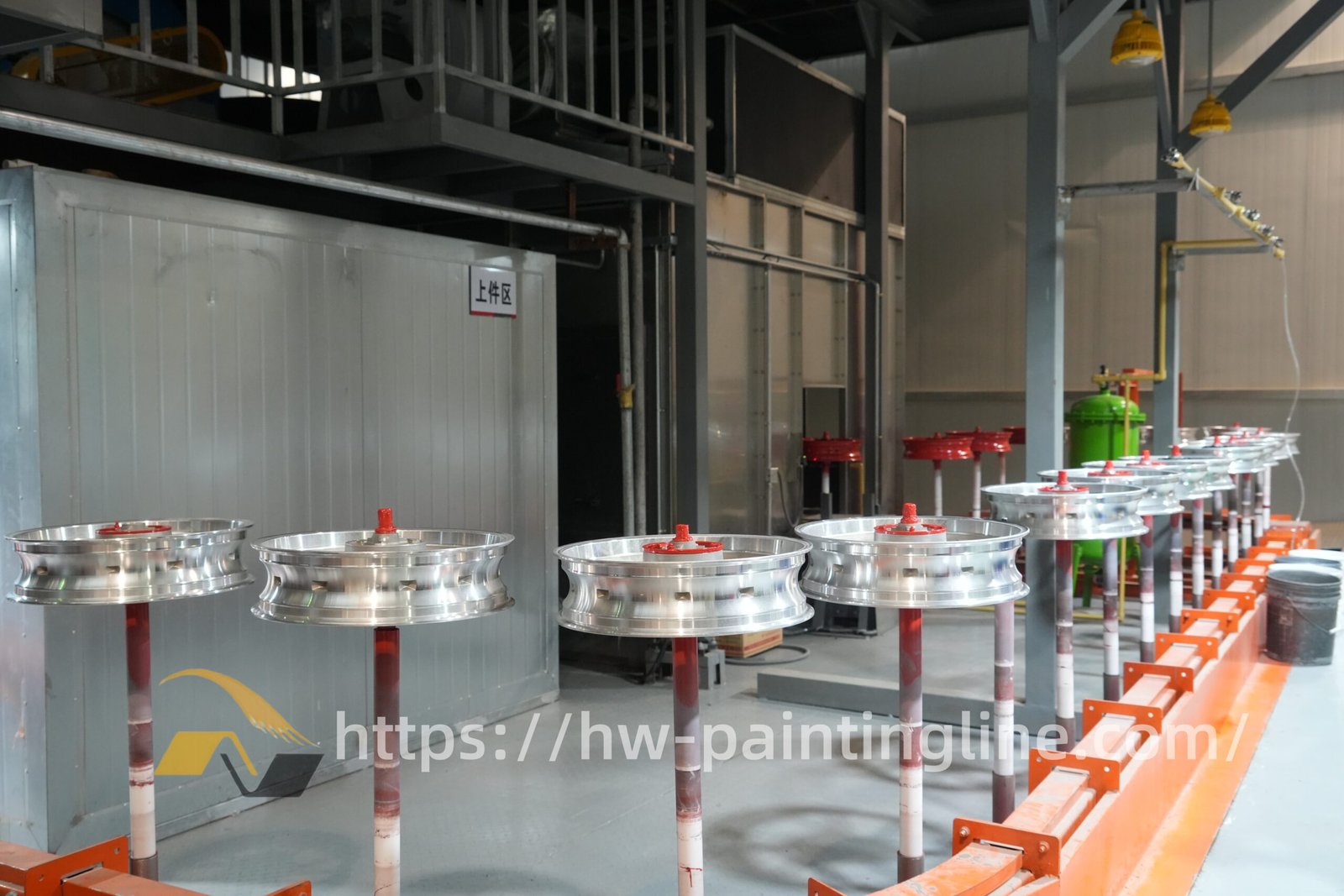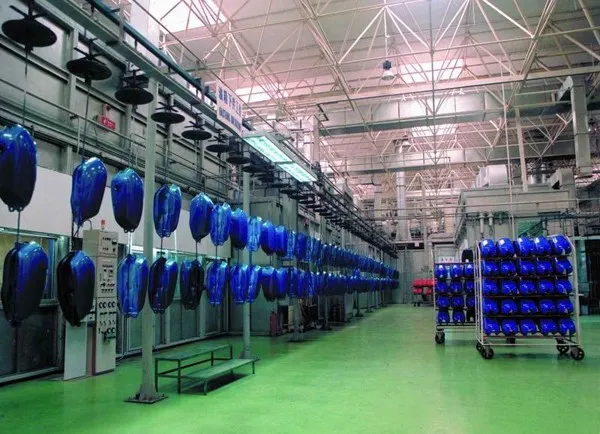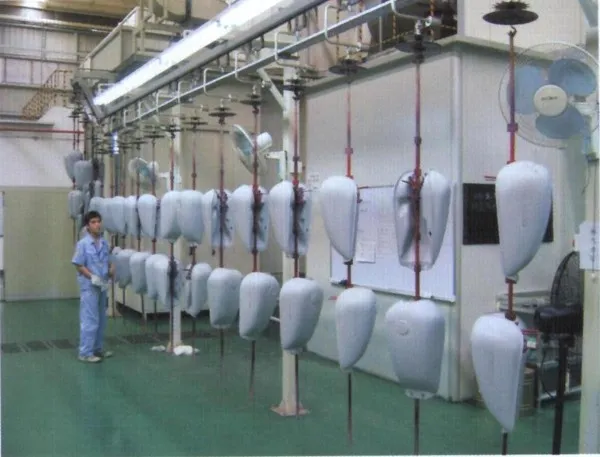Overview of Motorcycle Accessories Spraying Processes
The spraying process for motorcycle accessories is categorized into two main types: hardware spraying and plastic spraying. Each process employs specialized techniques and technologies to ensure durability, aesthetics, and quality. Below is a simplified breakdown of the processes for different motorcycle components.
- Motorcycle Hardware Spraying
Spraying for motorcycle hardware involves three primary technologies:
- Electrophoresis: Used for creating a corrosion-resistant base layer.
- Painting: Applied for aesthetic and protective finishes.
- Powder Spraying:Provides a durable and weather-resistant coating.
2. Motorcycle Plastic Parts Spraying
Plastic spraying for motorcycle parts typically uses UV paint spraying and PU paint spraying for high-quality finishes.
UV-Compatible PU Paint Spraying Process:
- Preparation:Dust removal and preheating.
- Primer Application:Spraying primer and leveling.
- Surface Drying: Drying and UV curing.
- Topcoat Application:Dust removal, spraying paint, leveling, and surface drying.
- Final Steps: UV curing, PU drying, cooling, and part removal.
3.Motorcycle Fuel Tank Spraying Process
The fuel tank spraying process is highly detailed and includes multiple stages for both inner and outer coatings:
Key Steps:
-Preparation:
- Top part inspection with water detection.
- Turning parts for pretreatment.
- Hot water washing, pre-degreasing, and main degreasing.
-Pretreatment:
- Multiple washing stages (Washing 1, Washing 2).
- Silane coating.
- Pure water washing (1 and 2).
-Inner Coating:
- Turning part inner coating.
- Drying and dehydration.
-Outer Coating:
- Filling paint and applying stopper.
- Static leaching and rotary suspension line leaching.
- Artificial pouring paint leaching.
-Powder Coating:
- Powder spraying (automated and manual).
- Powder drying and cooling.
-Final Steps:
- Down part inspection and packaging.
4.Motorcycle Hub Spraying Process
- The hub spraying process is designed to ensure corrosion resistance, durability, and a smooth finish.
Pretreatment Process:
- Cleaning and Degreasing:
- Hot water washing, pre-degreasing, and main degreasing.
- Multiple washing stages (Washing 1, Washing 2).
2. Chemical Treatment:
- Phosphating to enhance corrosion resistance.
- Chromium-free passivation for environmental safety.
3. Final Rinsing and Drying:
- Pure water washing (three stages).
- Drainage blowing and dehydration drying.
- Cooling and transfer to the next stage.
Paint Line Process:
- Dust removal and preheating.
- Primer spraying and leveling.
- Topcoat spraying and leveling.
- Paint drying and cooling.
- Final part packaging.

